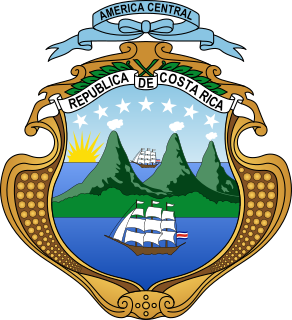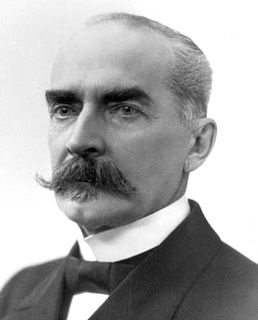
Presidential elections were held in Croatia for the first time on 2 August 1992 alongside simultaneous parliamentary elections. The result was a victory for incumbent Franjo Tuđman of the Croatian Democratic Union (HDZ), who received 57.8% of the vote, becoming the first popularly elected president of Croatia. Voter turnout was 74.9%.

Presidential elections were held in Croatia on 15 June 1997. They were the second presidential elections held since independence in 1991. The result was a victory for incumbent president Franjo Tuđman, the leader of the Croatian Democratic Union party (HDZ), who received 61.40% of the vote and was re-elected to a second five year term. As Tuđman received a majority of the valid votes cast on election day there was no need for a run-off. President Tuđman received a plurality of the votes in 20 of Croatia's 21 counties, while Vlado Gotovac did so in Istria County.

Presidential elections were held in Chile on February 1, 1942. The result was a victory for Juan Antonio Ríos of the Radical Party, who received 56% of the vote.

Federal elections were held in Germany on 19 January 1919, although members of the standing army in the east voted for their representatives only on 2 February. The elections were the first of the new Weimar Republic following World War I and the Revolution of 1918–19. It was also the first German election held using proportional representation and with women's suffrage. It is also reckoned as the first truly free and fair all-German election, as it was the first to be held after the scrapping of the old constituencies that over-represented rural areas. The voting age was lowered to 20, down from 25 which it had been in the Reichstag election of 1912.
Parliamentary elections were held in Finland between 1 and 3 March 1919. The Social Democratic Party emerged as the largest in Parliament with 80 of the 200 seats. Voter turnout was 67.1%.

Parliamentary elections were held in Czechoslovakia on 18 and 25 April 1920. Voting for the Chamber of Deputies occurred on April 18, 1920, and the voting for the Senate was held a week later on April 25, 1920. The election had initially been planned for mid- or late 1919, but had been postponed.

General elections were held in Belgium on 16 November 1919. Although the Belgian Labour Party received the most votes in the Chamber of Representatives elections, the Catholic Party remained the largest party in both the Chamber and the Senate. Voter turnout was 88.5% in the Chamber elections.

Early presidential elections were held in Brazil on 13 April 1919, following the death of Rodrigues Alves, who had been elected the previous year. The result was a victory for Epitácio Pessoa of the Paraíba Republican Party, who received 71.0% of the vote.

General elections were held in Brazil on 1 March 1930. In the presidential elections the result was a victory for Júlio Prestes of the Republican Party of São Paulo, who received 57.7% of the vote.

Parliamentary elections were held in Brazil on 19 January 1947. The elections were for 19 vacant seats in the Chamber of Deputies, one additional Senator for each state, and for all state Governors and legislatures.

General elections were held in Costa Rica on 7 December 1919. Julio Acosta García of the Constitutional Party won the presidential election, whilst the party also won the parliamentary election, in which they received 74.9% of the vote. Voter turnout was 57.8% in the presidential election and 42.1% in the parliamentary election.

Indirect presidential elections were held for the first time in Finland in 1919. Although the country had declared Prince Frederick Charles of Hesse King on 9 October 1918, he renounced the throne on 14 December. The President was elected by Parliament, with Kaarlo Juho Ståhlberg of the National Progressive Party receiving 71.5% of the 200 votes. Ståhlberg, a moderate, liberal and reformist politician, who favoured improving the material well-being of workers and other economically poor Finns, received the votes of Social Democrats, Agrarians and Progressives. He also firmly supported the new Finnish Republic, and a parliamentary form of government with a strong President as a mediator and a political reserve for politically troubled times. Mannerheim, an independent right-winger and monarchist, suspected the democratic, republican and parliamentary form of government of producing too partisan political leaders, and of working ineffectively during crises. Ståhlberg favoured the signing of peace treaty between Finland and the Soviet Russia, while Mannerheim in the summer of 1919 strongly considered ordering the Finnish army to invade St. Petersburg to help the Russian Whites in that country's civil war. Only the National Coalitioners and Swedish People's Party voted for Mannerheim in this presidential election.

General elections were held in Liechtenstein on 11 March 1918, with a second round on 18 March. They were the first elections held in the country contested by political parties, as the Christian-Social People's Party and Progressive Citizens' Party had been founded that year. The Progressive Citizens' Party emerged as the largest in the Landtag, winning seven of the 12 elected seats.

Parliamentary elections were held in Brazil on 15 November 1978. The National Renewal Alliance Party won 231 of the 420 seats in the Chamber of Deputies and 15 of the 23 seats in the Senate. Voter turnout was 81.7%.

General elections were held in Brazil on 3 October 1994. The presidential elections were won by Fernando Henrique Cardoso of the Brazilian Social Democracy Party, who received 54.3% of the vote. Cardoso won the election by a margin of 27.3%, the largest in Brazilian history to date, and the first of his two landslide victories. The Brazilian Democratic Movement Party remained the largest party in the Chamber of Deputies and the Senate.

General elections were held in Portugal on 28 April 1918, following a coup by Sidónio Pais in December 1917. The elections were boycotted by the Democratic Party, the Evolutionist Party and the Republican Union, who had won over 90% of the seats in the 1915 elections.

Parliamentary elections were held in Portugal on 11 May 1919. The three main parties that boycotted the 1918 elections returned to contest the elections. The result was a victory for the Democratic Party, which won 86 of the 163 seats in the House of Representatives and 36 of the 71 seats in the Senate.
Two referendums were held in Switzerland during 1918. The first was held on 2 June on introducing a direct federal tax, and was rejected by a majority of voters and cantons. The second was held on 13 October 1918 on introducing proportional representation for National Council elections, and was approved by a majority of voters and cantons. As a result, proportional representation was introduced in the 1919 elections.

Events in the year 1919 in Brazil.

Federal elections were held in Switzerland on 28 October 1917. The Free Democratic Party retained its majority in the National Council. They were the last elections held under the majoritarian system; following a referendum in 1918 in which two-thirds of voters voted for the introduction of proportional representation, the electoral system was changed and early elections held in 1919.

















